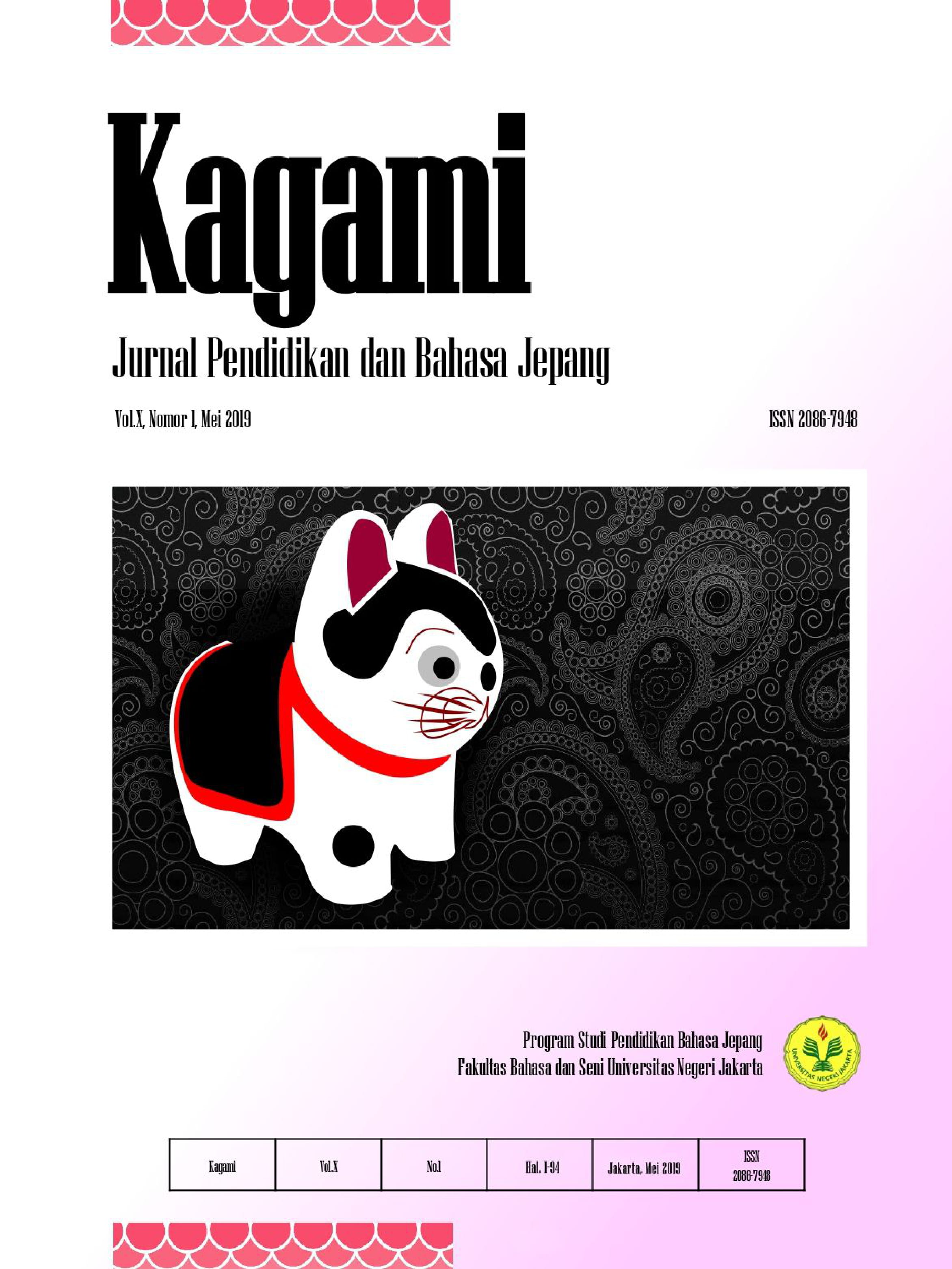EFEKTIVITAS MEDIA E-LEARNING BERBASIS EDMODO TERHADAP MATA KULIAH BUNPOU I PADA PROGRAM STUDI PENDIDIKAN BAHASA JEPANG UNIVERSITAS NEGERI JAKARTA
Keywords:
Effectiveness, E-leaming Media, Edmodo, Android, Bunpou IAbstract
This paper is a research report about the effectiveness of Edmodo-based e-learning media on Bunpou I courses in Japanese language education, Universitas Negeri Jakarta. The method used in this research was True Experimental by using the Pre-test Post-test Control Group Design model. The sample and population in this study were class A and class B in semester I of 2018 in the Japanese language study program, Jakarta State University. The instrument used in this study was a test in the form of a pretest - posttest, and a non test in the form of a questionnaire. Based on the results of data analysis, it can be scen that learning using Edmodo-based c-learning media on Bunpou I courses gets t-count of -0.621 which is smaller than t-table of 2.021 at a significance level of 0.05 (5%). with df 40. So t-count < t-table (0.621 <2.021). Thus there is no significant difference between Bunpou I learning using Edmodo based e-learning media and Android-based e-learning media. Then the experimental class produces n-gain of 0.67, which means the level of effectiveness is in the criteria of being. Whereas in the control class it produces n-gain of 0.69 which means that the level of effectiveness is also in the criteria of being. Then the value of effectiveness obtained from the results of the n-gain ratio of the experimental and control classes is 0.97 (0.97 <l). Thus it can be concluded that learning. using Edmodo-based e-learning media is no more effective than learning using Android-based e-leaming media on Bunpou l.
References
Munir. (2010). Kurikulum Berbasis Teknologi Informasi dan Komunikasi. Bandung: Alfabeta.
Lee, W. M. (2012). Beginning Android 4 Application Development. Indianapolis: Wiley.
Siregar, E., & Nara, H. (2011). Teori Belajar dan Pembelajaran. Bogor: Ghalia Indonesia.
Subiyantoro, E. (2013). Simulasi Digital Jilid 1. Jakarta: Kementrian Pendidikan dan Kebudayaan Republik Indonesia.
Sudjianto, & Dahidi, A. (2004). Pengantar Linguistik Bahasa Jepang. Jakart: Kesaint Blanc.
Sugiyono. (2010). Metode Penelitian Pendidikan; Pendekatan Kuantitatif, Kualitatif, dan R&D. Bandung: Alfabeta.
Wahono, R. S. (2003). Pengantar E-Learning dan Pengembangannya. Diakses tanggal 26 April 2017, dari http://ilmukomputer.org/2008/11/25/pengantar-elearning-dan-pengembangannya
Warsita, B. (2008). Teknologi Pembelajaran, Landasan dan Aplikasinya. Jakarta: Rineka Cipta.
Kodama, Yasue, & Kida, Shinri. (2010). Bunpou wo Oshieru (Kokusaikouryukikin nihongo kyujuhou shirizu dai 4-kan). Jepang: Kabushikigaisha hitsuji shobou.





